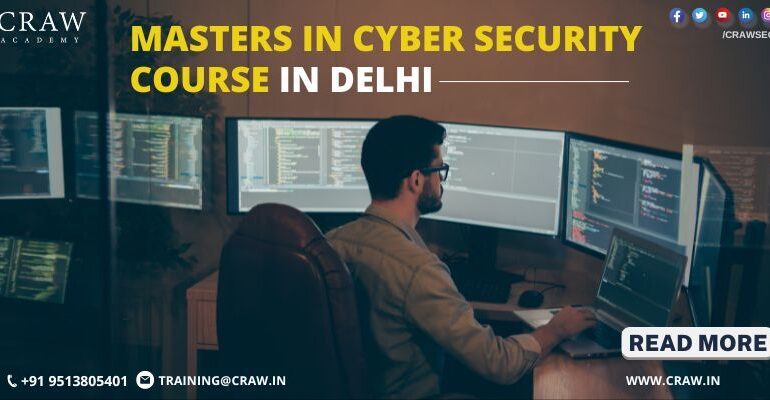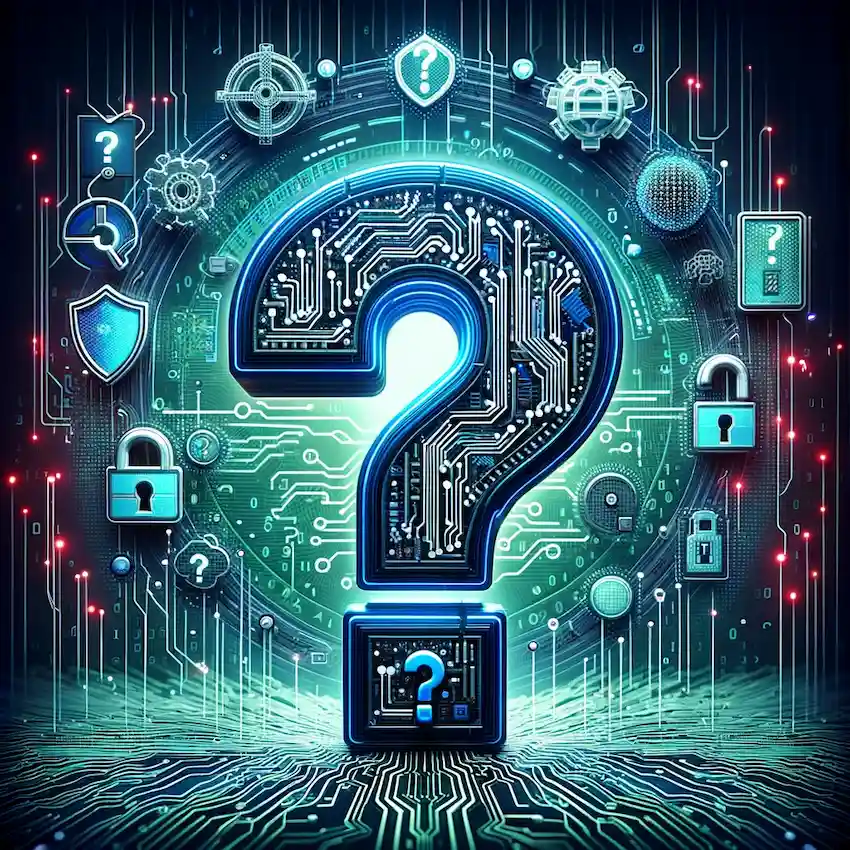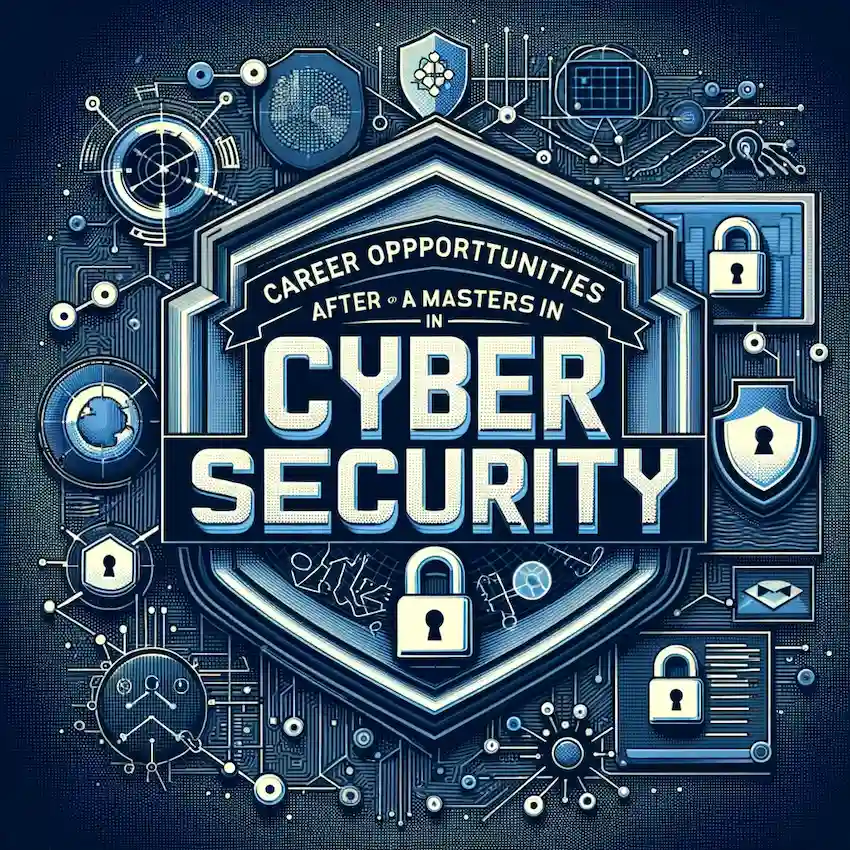Masters in Cybersecurity Course in Delhi

Masters in Cybersecurity Course in Delhi
Become a Master in Cybersecurity Course in Delhi
In the contemporary digital landscape, characterized by the widespread migration of businesses and services to online platforms, the protection of cybersecurity has emerged as a paramount concern. The safeguarding of sensitive data and systems from cyber threats, breaches, and attacks is of utmost importance, prompting firms to make substantial investments in acquiring skilled personnel to fortify their cyber defensive mechanisms.
In response to this growing need, numerous educational institutions worldwide have initiated the provision of specialist courses in the field of cybersecurity. New Delhi, the capital city of India, is a notable example within this particular realm. In this discourse, we shall explore the intricacies associated with the pursuit of a Masters in Cybersecurity Course within the geographical confines of Delhi.
Masters in Cybersecurity Course Overview
What is Cybersecurity?
Cybersecurity is the practice of keeping computer systems, networks, and data safe from theft, damage, disruption, or entry by people who shouldn’t be there. This includes a wide range of tools, processes, and controls that are meant to protect systems and data from cyber threats.

In this context, cybersecurity can also mean making sure that data is private, correct, and available, which is important for both people and businesses in today’s connected world. Cybersecurity needs to be worked on all the time because online threats change as technology gets better.
Why Pursue a Masters in Cybersecurity?
It is impossible to overestimate the significance of cybersecurity in today’s duly interconnected digital society when data is the new gold and networked systems support many facets of modern life. The requirement for highly developed cyber skills and knowledge has grown critical in light of the increasing sophistication and frequency of cyber threats. Here are some of the most convincing arguments in favor of earning a Master’s degree in Cybersecurity if you’ve been thinking about doing so:
- Rising Cyber Threat Landscape,
- Lucrative Career Opportunities,
- Broadening of Skillset,
- Addressing the Skills Gap,
- Ethical Considerations and Societal Impact,
- Network and Collaborate,
- Future-Proofing Career,
- Contribution to a Safer Digital World, etc.
Prerequisites for a Masters in Cybersecurity
Prior to embarking on the sophisticated realm of cybersecurity at the master’s level, prospective learners are often required to exhibit a fundamental comprehension of computer systems and networks and, frequently, a rudimentary knowledge of security. The prerequisites for a Master’s in Cybersecurity can vary depending on the institutions and localities. However, the following are commonly observed requirements:
- Educational Background,
- Work Experience,
- Foundational Knowledge,
- Standardized Tests,
- English Proficiency (For Non-Native Speakers),
- Letters of Recommendation,
- Personal Statement or Statement of Purpose,
- Preliminary Courses or Certifications,
- Interviews, etc.
Academic Requirements
Bachelor’s Degree Areas of Study
Typically, possession of a bachelor’s degree is a standard prerequisite for admission into a Master’s program in Cybersecurity. While there may be variations in the choices of different colleges, the subsequent fields of undergraduate study are generally acknowledged and favored.
- Computer Science,
- Information Technology (IT),
- Information Systems,
- Engineering (with a focus on Computer or Electronics),
- Networking,
- Cybersecurity or Information Security, etc.
Relevant Coursework
Potential applicants for a Masters in Cybersecurity frequently find it advantageous to acquire previous exposure to specific topics during their undergraduate studies or through supplementary certifications. These courses facilitate the development of fundamental knowledge.
| Operating Systems | Gaining a comprehensive comprehension of the complexities inherent in various operating systems, such as Windows, Linux, and Unix, assumes paramount importance due to the fact that numerous cyber threats specifically exploit weaknesses within these operating systems. |
| Programming | Courses in programming languages such as Python, Java, and C++ increase students’ comprehension of software architecture, hence enhancing their ability to recognize potential flaws and develop scripts for cybersecurity-related undertakings. |
| Networks | Courses that encompass the fundamental concepts of networking protocols, data transfer, and network designs are of utmost importance, as numerous cyberattacks specifically exploit weaknesses inside networks. |
| Databases | Understanding the mechanisms involved in storing, retrieving, and manipulating data within relational databases, such as SQL, and non-relational databases, like NoSQL, is of utmost importance, particularly in the context of data breaches. |
| Cryptography | A foundational course in cryptography aims to acquaint students with fundamental ideas pertaining to encryption, decryption, and the establishment of safe channels for data transmission. |
| Basic Cybersecurity Concepts | Courses that cover topics such as malware, firewalls, intrusion detection systems, and virtual private networks (VPNs) provide an introductory understanding of fundamental concepts that are further explored in a master’s program. |
| Ethics and Cyber | A comprehensive comprehension of the legal and ethical ramifications associated with activities in the cyber domain is important, hence rendering courses pertaining to these subjects exceedingly pertinent. |
Work Experience & Skills Needed
Core Subjects in a Masters in Cybersecurity Program
Academic prerequisites serve as the fundamental basis for a Master’s in Cybersecurity degree, with the inclusion of professional experience and specialized abilities significantly augmenting the educational journey. The program typically encompasses a range of key disciplines.
| Cryptography | This study explores several encryption methods and procedures employed to ensure the security of data throughout its transmission and storage. |
| Network Security | This academic discourse pertains to the various strategies and technologies employed for safeguarding network infrastructure. It encompasses issues such as intrusion detection systems, firewalls, and secure network architectures. |
| Cybersecurity Governance and Risk Management | Gaining comprehension of the organizational structures, policies, and procedures that effectively safeguard a company’s cyber assets. |
| Digital Forensics | This paper explores several methodologies employed in the examination and detection of cybercrimes, retrieval of lost data, and analysis of cyberattacks. |
| Secure Software Development | Various methodologies for developing and implementing software with enhanced resilience against cyberattacks. |
| Ethics, Law, and Compliance in Cybersecurity | Understanding the legal and ethical implications within the domain of cybersecurity, encompassing worldwide legislations, rules, and frameworks. |
| Incident Response | This paper discusses the procedures and processes that can be implemented to effectively address and manage the consequences of a security breach or cyberattack. |
Career Opportunities after a Masters in Cybersecurity
Obtaining a Master’s degree in Cybersecurity can provide individuals with a wide range of professional prospects.

- Information Security Analyst: The individual is tasked with the responsibility of safeguarding a business’s computer systems and networks against potential cyber-attacks.
- Cybersecurity Consultant: Providing specialized consultation to businesses regarding the implementation of robust measures for safeguarding their digital resources.
- Ethical Hacker/ Penetration Tester: Engaged in the deliberate and legal act of targeting computer systems with the purpose of identifying vulnerabilities that might potentially be exploited by hostile hackers.
- Digital Forensics Expert: The examination of digital data in order to reveal electronic evidence is a crucial aspect of the investigation of cybercrimes.
- Chief Information Security Officer (CISO): The individual in question holds a high-ranking position and is tasked with the development and execution of an information security program.
- Security Software Developer: The development of software aimed at safeguarding computer systems and preserving data integrity.
- Incident Responder: With a focus on addressing security breaches and cyberattacks, this specialization involves the implementation of strategies to minimize harm and restore data.
Job Titles & Roles
A Master’s in Cybersecurity offers a pathway to a range of specialized roles in the field of information security. After doing the Master in Cybersecurity Course in Delhi, there are a number of job titles & roles that can be chosen for the sake of employment, such as the following:
- Information Security Analyst
- Role: The primary responsibility of an individual in this role is to ensure the protection and security of an organization’s computer systems and networks. The individuals in question engage in the surveillance of systems to detect breaches, execute security procedures, and formulate strategies to address and mitigate security problems.
- Cybersecurity Consultant
- Role: Provide specialized consultation to corporations on optimal strategies for safeguarding their digital assets. This frequently entails evaluating pre-existing systems for potential vulnerabilities, proposing security remedies, and occasionally supervising the execution of these remedies.
- Ethical Hacker or Penetration Tester
- Role: These individuals are known as “white hat” hackers, whose primary responsibility involves intentionally examining computer systems in order to identify potential weaknesses. The primary objective of these individuals is to identify and disclose vulnerabilities in order to preempt any exploitation by malevolent hackers.
- Cybersecurity Engineer
- Role: The integration of engineering principles with cybersecurity concepts is employed to devise and execute the development of secure systems. Frequently, security solutions are developed, tested, and optimized in order to align with the specific requirements of the organization.
- Digital Forensics Expert
- Role: When a cybercrime transpires, professionals in the field of digital forensics are called upon to ascertain electronic evidence, conduct an inquiry into the occurrence, and occasionally aid law enforcement or legal personnel in constructing a legal argument.
- Chief Information Security Officer (CISO)
- Role: This position holds a high-ranking executive status. The Chief Information Security Officer (CISO) is responsible for supervising the whole cybersecurity strategy of the firm, ensuring that all systems, policies, and teams are in accordance with safeguarding against cyber attacks. Frequently, they engage in close collaboration with fellow leaders and provide direct reports to the Chief Executive Officer (CEO) or Chief Information Officer (CIO).
- Security Architect
- Role: The task at hand involves the development of a robust network and system architecture that prioritizes security measures for the company. The primary objective is to guarantee that every component of the digital infrastructure is meticulously crafted to incorporate the most robust security protections and processes.
Apart from the above-mentioned job titles and roles, some other proficient job titles that bear some crucial set of responsibilities on their shoulders within a cybersecurity-based organization, such as:
- Incident Responder,
- Security Software Developer,
- Security Systems Administrator,
- Security Auditor,
- Cybersecurity Researcher, etc.
Potential Salaries
The remuneration in the domain of cybersecurity exhibits considerable variation, contingent upon characteristics such as geographical location, educational attainment, professional tenure, industry-specific requirements, organizational scale, and possession of certificates.
In addition to this, you may refer to the following table to seek the varied potential salaries a person can earn after successful completion of the Masters in Cybersecurity Course in Delhi from a reputed institution:
| Job | Average Salary (in INR) |
| Information Security Analyst | ₹5 lakh to ₹10 lakh per annum |
| Cybersecurity Consultant | ₹8 lakh to ₹15 lakh per annum. |
| Ethical Hacker or Penetration Tester | ₹4 lakh to ₹12 lakh per annum. Senior or highly specialized roles can earn significantly more. |
| Cybersecurity Engineer | ₹6 lakh to ₹16 lakh per annum. |
| Digital Forensics Expert | ₹6 lakh to ₹18 lakh per annum. |
| Chief Information Security Officer (CISO) | Because this is an executive position, CISOs can make anywhere from ₹20 lakh to ₹60 lakh or even more, depending on the size and type of the company. |
| Security Architect | ₹12 lakh to ₹25 lakh per annum. |
| Incident Responder | ₹7 lakh to ₹15 lakh per annum. |
| Security Software Developer | ₹6 lakh to ₹18 lakh per annum. |
| Security Systems Administrator | ₹4 lakh to ₹10 lakh per annum. |
| Security Auditor | ₹5 lakh to ₹14 lakh per annum. |
| Cybersecurity Researcher | Depending on where they work, this can change a lot, but specialists can make anywhere from ₹7 lakh to ₹20 lakh per year. |
Choosing the Right University for Cybersecurity Masters
The process of choosing an appropriate university to pursue a Master’s degree in Cybersecurity is a crucial and impactful decision. This choice can greatly influence future employment prospects, opportunities for networking, and the level of expertise one attains in the field. Outlined below are several essential factors and procedures to assist you in making this pivotal decision:
- Accreditation:
It is imperative to verify that the university possesses accreditation from a reputable accrediting organization. The process of accreditation guarantees that the school satisfies predetermined academic and operational criteria, thereby indicating the level of excellence in the education provided.
- Curriculum and Specializations:
The Core Curriculum is a fundamental component of academic programs that encompasses a set of required courses designed to provide students with a well-rounded education. It is advisable to do a thorough evaluation of the basic subjects provided to ascertain their congruence with the fundamental prerequisites of the sector.
Certain colleges provide specialized areas of study such as network security, digital forensics, or cybersecurity policy. The selection should be made in accordance with one’s professional ambitions.
- Faculty: An academically proficient faculty possessing industrial expertise can offer practical perspectives, hence enhancing the dynamism and applicability of the learning experience. It is advisable to evaluate the credentials of the faculty members, examine their publications, and ascertain any links they may have with the industry.
- Facilities and Labs: The acquisition of practical skills is vital in the field of cybersecurity. It is imperative that the institution offers cutting-edge laboratory facilities and simulation settings that afford students the opportunity to apply and reinforce their acquired knowledge.
- Research Opportunities: Individuals with a proclivity for research may find universities with robust research programs, notable publications, or affiliations to be useful.
- Internships and Placement Opportunities: A university that has established connections with the industry can offer highly valuable internship possibilities, facilitating a seamless transfer from an academic environment to a professional setting. Examine the institution’s placement record and the roster of organizations that actively recruit graduates from the establishment.
- Location: The geographical placement of the university might exert an impact on the potential for networking, internships, or employment prospects. Metropolitan areas characterized by a flourishing technology sector may present enhanced opportunities for practical implementation and professional networking.
- Alumni Network: The presence of a strong alumni network can offer valuable mentoring prospects, employment recommendations, and firsthand knowledge from those who have already navigated a similar trajectory.
- Cost and Financial Aid: It is crucial to prioritize quality while considering educational options. However, gaining knowledge about tuition prices, living expenses, and the availability of scholarships or financial aid can contribute to making a well-informed selection.
- Student Feedback and Reviews: Various channels such as online platforms, university forums, or direct encounters can offer valuable perspectives on student contentment, campus experiences, and other qualitative dimensions of the university.
- Recognition and Ranking: Although rankings should not be the exclusive factor for evaluation, they can provide a general indication of a university’s standing within the academic community.
- Flexibility and Mode of Learning: Individuals who are employed or have other obligations may consider the availability of part-time courses, online learning platforms, or flexible schedules as significant determinants in their decision-making process.
Apart from a regular Masters in Cybersecurity Course in Delhi, a person can also opt for a 1-year Diploma in Cyber Security Course by Craw Security, the Best Cybersecurity Training Institute in India. This course comprises a 12-course bundle that is highly affiliated to the FutureSkills Prime*, a MeitY – NASSCOM, Digital Skilling Initiative, and duly approved by the Government of India. The primetime 12 courses comprised within 1 Year Cyber Security Diploma Course by Craw Security are mentioned below:
- Basic Networking
- Linux Essentials
- Python Programming
- Ethical Hacking
- Advanced Penetration Testing
- Cyber Forensics Investigation
- Web Application Security
- Mobile Application Security
- IoT Penetration Testing
- Endpoint Security
- AWS Associate Course
- AWS Cloud Security
*Linux Essentials Course is not affiliated with the FutureSkills Prime
The Future of Cybersecurity and Its Significance
The ongoing expansion of the digital frontier is evident as it encompasses several aspects of contemporary existence, ranging from individual electronic gadgets to worldwide infrastructures. The proliferation of digital infrastructure has led to an increase in both the complexity and frequency of cyber-attacks, hence emphasizing the heightened importance of cybersecurity in the future. As society progresses into an era characterized by the prevalence of the Internet of Things (IoT), artificial intelligence (AI), and quantum computing, the number of possible vulnerabilities increases.
Nevertheless, these technological breakthroughs also give rise to novel defense measures, such as security protocols driven by artificial intelligence and encryption based on quantum principles. Moreover, the increasing dependence on digital technologies in industries such as healthcare, finance, and public infrastructure underscores the importance of cybersecurity, transforming it into a concern that encompasses not only safeguarding data but also ensuring public safety and national security.
The perpetual evolution of the digital domain necessitates a corresponding evolution in the efforts to maintain its security. This underscores the continuing significance of cybersecurity in defining a secure digital future for individuals, corporations, and nations.
FAQs
About Masters in Cybersecurity Course in Delhi
1: Is a background in IT necessary for a Masters in Cybersecurity?
Yes, a valid IT background is sincerely needed for doing the Master in Cybersecurity Course. However, a person with a non-IT background can check out the mesmerizing 1 Year Diploma in Cyber Security Course by Craw Security that requires no IT experience by the applicants.
2: How long does a Masters in Cybersecurity program typically last?
A Masters in Cybersecurity program typically lasts between one to two years.
3: What’s the difference between cybersecurity and information security?
Cybersecurity:
This pertains primarily to the safeguarding of internet-connected systems, encompassing hardware, software, and data, from cyberattacks, harm, or unlawful entry. Cybersecurity is a specialized field within the realm of information security that explicitly addresses the risks and vulnerabilities that arise from the digital domain.
Information Security (InfoSec):
The word “information security” refers to the comprehensive safeguarding of information, irrespective of its medium (such as digital, paper, or other physical forms), against unauthorized access, disturbance, alteration, scrutiny, recording, or elimination. The primary objective of this measure is to guarantee the preservation of information’s confidentiality, integrity, and availability.
4: Are there online programs for Masters in Cybersecurity?
Indeed, a plethora of online programs exist for individuals seeking to pursue a Master’s degree in the field of Cybersecurity. The increasing need for cybersecurity specialists has prompted educational institutions worldwide to respond by providing flexible, distance-based learning opportunities for individuals seeking to enhance their knowledge and skills in this domain.
Moreover, you can get the 1 Year Diploma in Cyber Security Course by Craw Security through the online version of the training also with the same category of training professionals that proceed with our offline version.
5: Is a Masters in cyber security worth IT?
Yes, doing a Master’s in cybersecurity is certainly worth it as the stream is technically booming, and a number of individuals are planning to start a career in cybersecurity.
6: Which master degree is best for cyber security?
A person can choose the following options for doing the Master’s degree in cyber security in India:
- AMU, Aligarh, Uttar Pradesh
- NSHM Knowledge Campus, Kolkata, West Bengal
- Amity University, Jaipur, Rajasthan, and many more.
7: Can I learn cyber security in 6 months?
Yes, you may learn the cybersecurity course in merely 6 months with the 6-Month Information Security Diploma Course by Craw Security. Call now at +91-9513805401 for more info.
8: Is cybersecurity a stressful job?
Yes, certainly, cybersecurity is a stressful job as it contains a lot of practices to be done in a single go while performing diverse tasks in daily official chores related to the cybersecurity profession within an organization.
Conclusion
In the bottom line, we would like to say that there are several prominent colleges and universities in the wild by which a learner can opt for a mesmerizing Master in Cybersecurity Course. However, one can also choose to learn all the fundamentals of cybersecurity with the help of a magnificent 1 Year Diploma in Cyber Security Course by Craw Security facilitated offline at the Saket and Laxmi Nagar institutes in Delhi NCR, as well as online at any particular location worldwide.
To know more about the same, give us a call back at +91-9513805401 and have a word with our highly trained and skilled educational consultants.

















